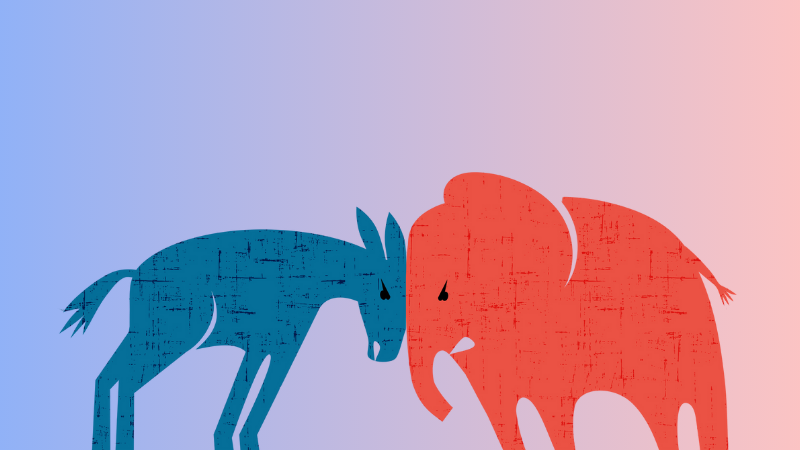Social Identity Bias and Decision-Making

Key Takeaways
- Human beings form groups and often make decisions based on group interests.
- People also may judge situations based on group interests rather than objective reality.
- Social identity bias can lead to bad decisions and losses.
Social identity refers to the human tendency to identify for in-groups and out-groups. It is a concept used across the social sciences to study human behavior and decision-making. Social grouping and learning to cooperate with other people form the basis of human civilization. We learn how to be people by being around other like-minded people. These group identities can not only influence our values, but shape the way that we see and interpret information, possibly leading to poor decisions.
I recently published work with Melissa Buelow, Brad Okdie and Jim Wirth. We investigated partisan bias in decision-making using a cognitive test called the Iowa Gambling Task (ITG). In the task, respondents are given four decks of cards. The decks vary in their probability of giving the responding a gain or a loss on any given card. The respondents have to draw repeatedly from the decks, learning about which decks are more likely to provide gains and losses as they go. Ideally, by drawing repeatedly from the decks, respondents should learn from experience and start to pick from the more advantageous decks as the task continues.
In our experiment, we labeled the decks “Democratic” and “Republican.” In one condition, the Democratic decks were advantageous, and in the other the Republican decks were advantageous. Unsurprisingly, partisan respondents did very well on the task when their own party’s decks were advantageous.
Crucially, however, partisans did a terrible job of understanding when their own party’s decks were hurting them. In conditions where their party’s decks were disadvantageous, partisans rated their own party’s decks as better even as choosing from those decks repeatedly led to losses. At the end of the task, partisans reported that choosing their own party had led to better results even when they had lost. We found that partisan bias led to an impairment in decision-making that would typically be associated with a severe neurological disability or personality disorder.
Our research fits with previous findings that show partisans frequently hold radically different interpretations of factual events. The problem is not that people do not have information, but that they interpret that information in line with their pre-existing views. The simple notion of whether or not something is good news or bad news, helpful or hurtful, etc. depends on whether it aligns with the person’s social identity rather than whether it is, in reality, good or bad. Our study is troubling since we did not require our participants to change any pre-existing views or adopt the other party’s position or candidate. Even in playing a simple game, partisan bias made it difficult for respondents to correctly interpret information.
Nor is this a problem limited to voters. A growing body of research shows that political leaders may suffer from the political biases that restrict the average voter. Political leaders may project their own views onto their constituents, think their own party’s base is more representative than it is, and may misunderstand where voter priorities actually are. Political leaders may have access to tremendous amounts of information about economic issues, military concerns or public opinion, but they may interpret according to their pre-existing views rather than objectively assessing the information.
And while party identity is a key social group in politics, social identity groups (and the bias that comes with it) can be aligned with race, religion and any identity that bonds individuals. Socialization is helpful and teaches us how to communicate and act collectively as a society. However, the more we align with our in-groups, the more likely it is to influence how we see everything else.
The key to overcoming in-group bias is to practice self-awareness and understand how your group identity influences you. Indeed, one of the reasons politicians misinterpret information is that they often hear more from activists and lobbyists from their own party. Representatives may overestimate how widespread their views are because they are only exposed to their own side.
But even exposure isn’t enough. Indeed, in our study we gave people every opportunity to learn when their own party was disadvantageous, and they simply misinterpreted the data. Rather than seeing the situation for what it was, they saw it for what they wanted it to be.
Leaders must take the time to understand their own bias. Think about how someone outside of your group might interpret the data. Your group might be wrong. Your group might be misleading you.